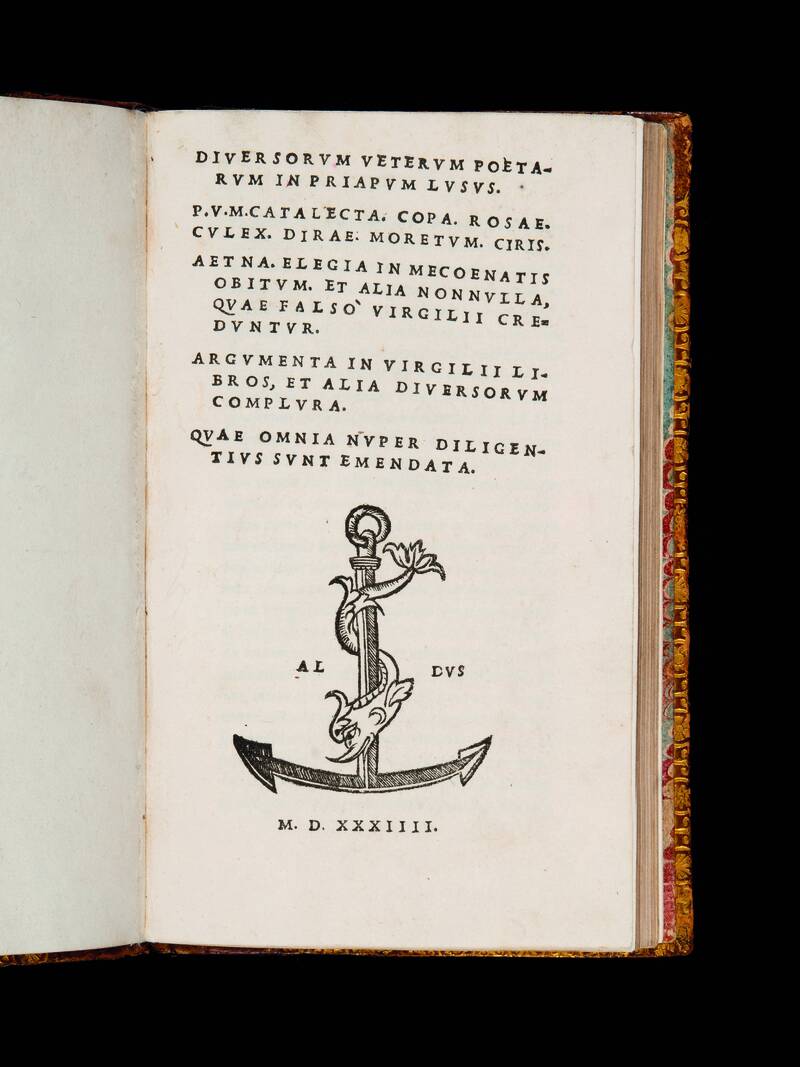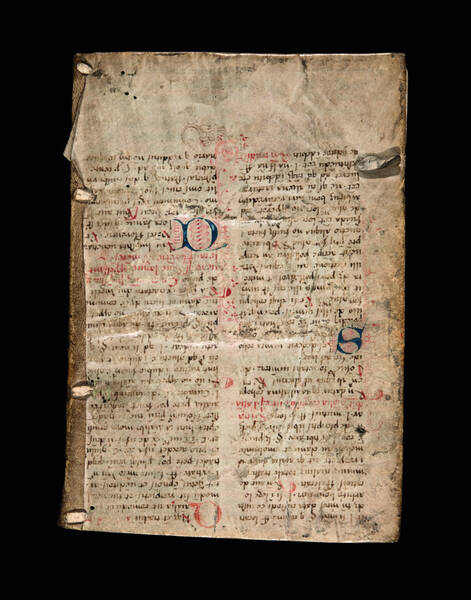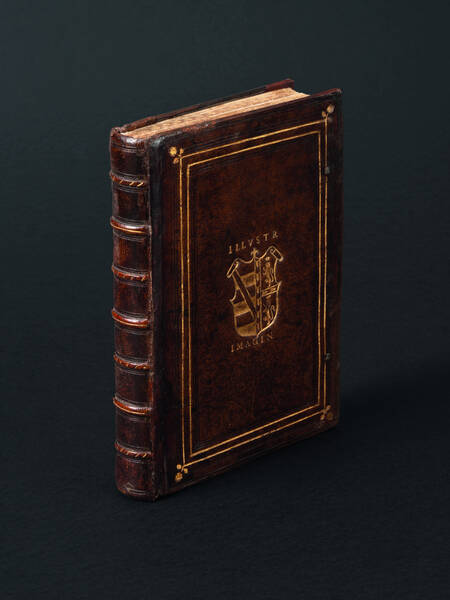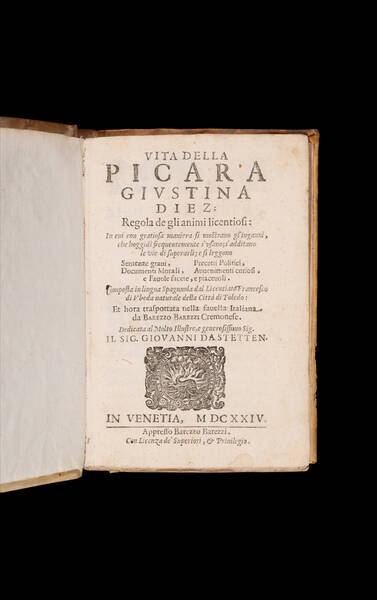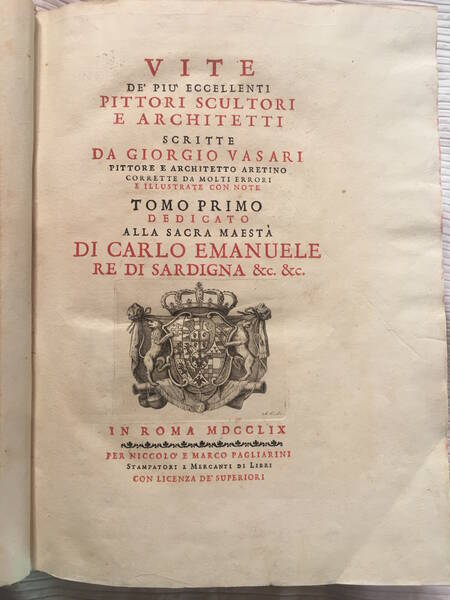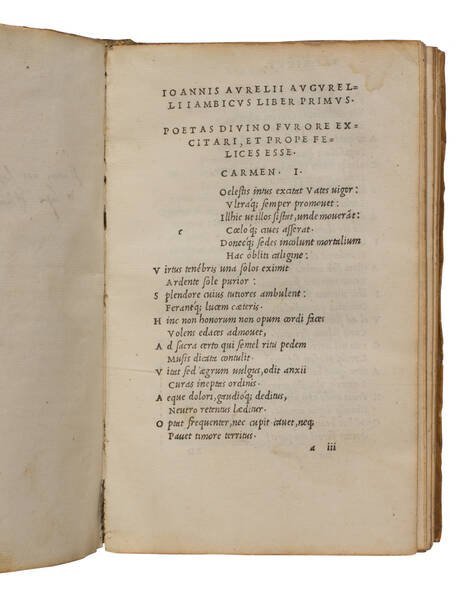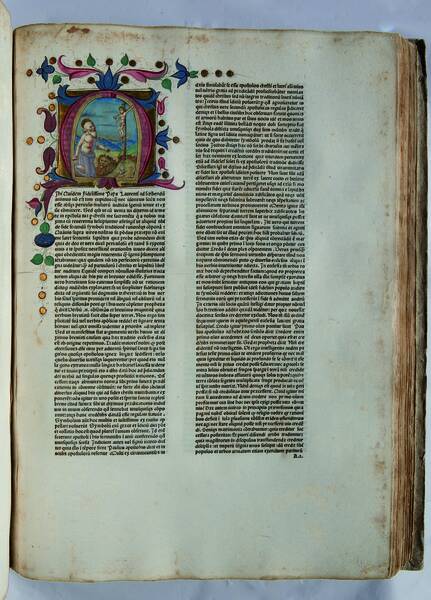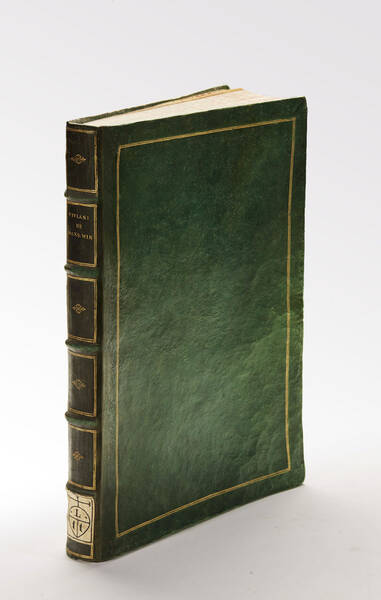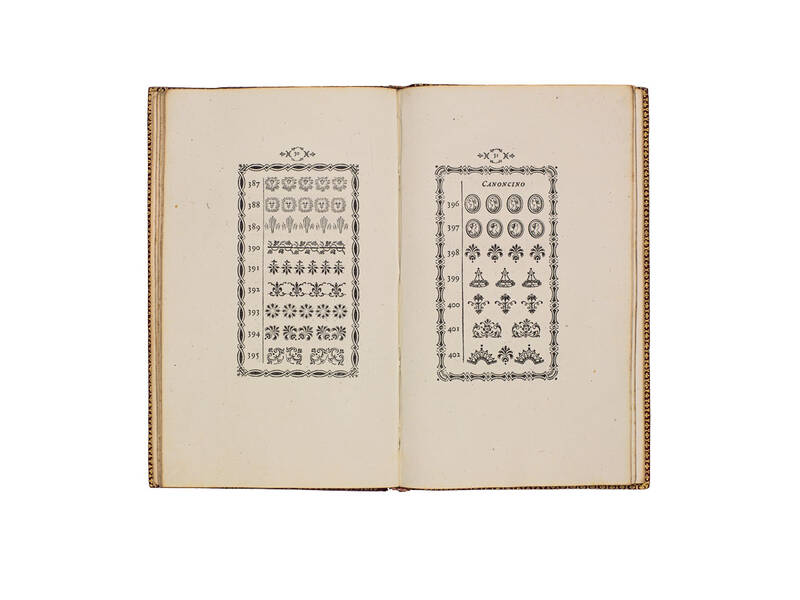[PRIAPEA]. Diversorum veterum poetarum in Priapum lusus. P.V.M. Catalecta.
Venice, eredi di Aldo., 1534.Octavo (156 x 90 mm.), 80 leaves with Aldus's device on title page and an verso of the lest leaf.
Binding slightly rubbed but a very good copy from the library of Rogier Peyrefitte (ex libris) bound in XVIII century calf, spine in compartments with gilt decoration, gilt edges.
Second stand-alone Aldine edition, a reprint of the 1517 collection of short comedic and erotic poems dedicated to Priapus, Roman god of fertility. The 80 epigrams, belonging to the Augustan Age (c. 43 BC - 18 AD) are thought to have originated from transcriptions of statues and temples, although some may originally have been the leisure products of aristocratic voluptuaries, and later compiled into this work. Largely lost for a millennium until the 14th century, it was accepted as the work of Virgil and their first appearances in print were in publications of his writings.
Priapus originates from Asia Minor, seeping into Greek culture around the 4th century BC. First mentioned in Xenarchus' Middle Comedy, his status as a minor fertility god was incorporated into Greek literature as a mythico-political figure, and later adopted as a popular figure in Roman erotic art and Latin literature, such as Ovid's Fasti. Much about him is suggestive of ‘lowness': as a minor god, he is rustic, associated with pastoral settings and made of wood, protects the gardens which are often presented as small and meagre.
The Priapea follows the ithyphallic god's colourful adventures while protecting his gardens and vineyards, threatening any thieves with extreme obscenities with flashes of wit and humour. “This collection sensitizes us to the emasculating liberation on offer in all poetry: every poem is, to some extent, a garden of earthy delights where readers can bask in a voluptuous range of bodily sensations. When that garden belongs to Priapus, it may be obscene or prone to invective flights that leave the reader's loins “hollowed” (Pr. 51.4). But no matter how menacing the content, a poem will also encourage those loins to undulate in ways the ideal Priapic vir [man] was never meant to enjoy.” (Young, 2015) Written in Priapus' voice, the first epigram advises the reader to the work's explicit content, almost as if reading these poems was akin to trespassing the god's gardens:
You who are about to read shameless jests of artless verse, lower that
brow that befits Latium. The sister of Phoebus does not dwell in this
shrine, nor does Vesta, nor does the goddess who was born from her
father's head, but the ruddy guardian of gardens, more than usually
well-endowed, who has his groin covered by no clothing. So, either
put a tunic over the part that ought to be covered, or, with the eyes
with which you gaze upon this part, read on.
“[The] horticultural theft and retaliation allegorizes the experience of reading the Carmina Priapea itself. Obscene and rebarbative, this collection is a thorny garden of verse that readers are invited to explore - at their own risk [... This collection sets up a tension between the forms of bodily regulation Priapus represents and a divergent set of sensory experiences available through its poetic form. To be sure, it delivers a relentless lesson in Rome's traditional sexual norms; but this lesson is couched in a form that would have immersed its first readers (mostly elite and mostly male) in a torrent of patently ‘unmanly' sensations.” (Young, pp.183-208)
USTC 802677; Adams v.2 2085 p.114; Brunet 359; BM STC Italian p.539 C.4 f.18; C.19. e.6; G.9831; E. M. Young.“The Touch of the Cinaedus: Unmanly Sensations in the Carmina Priapea”. Classical Antiquity, 34(1), 2015, 183–208.)
Other Books
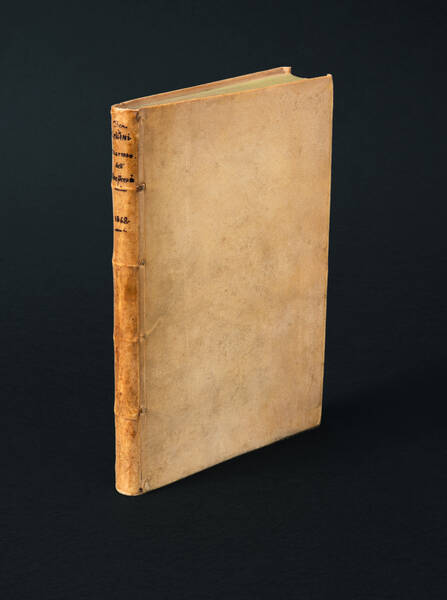
CELLINI, Benvenuto
Due trattati vno intorno alle otto principali arti dell'oreficeria. L'altro in materia dell'arte della scultura; doue si veggono infiniti segreti nel...
€ 12.000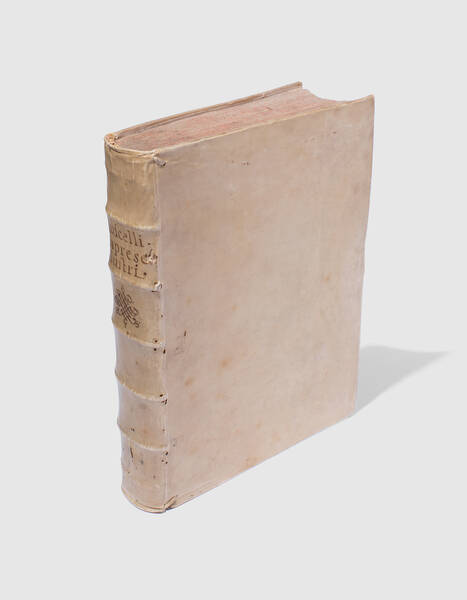
RUSCELLI, Gerolamo
Le imprese illustri con espositioni, et discorsi del s.or Ieronimo Ruscelli.
SOLD OUT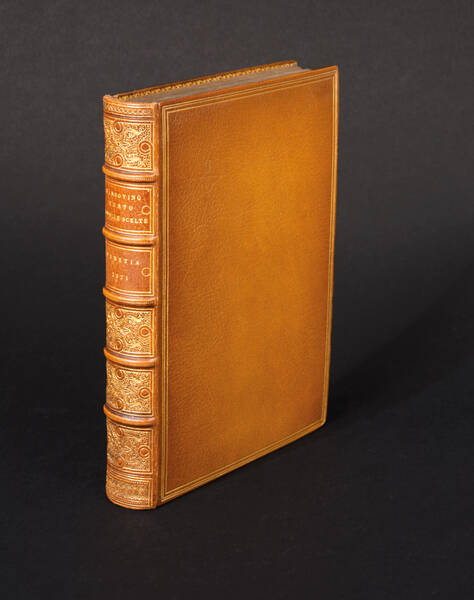
SANSOVINO, Francesco
Cento nouelle scelte da piu nobili scrittori della lingua volgare, con l'aggiunta di cento altre nouelle antiche, non pur belle per inuentione, ma...
€ 3.600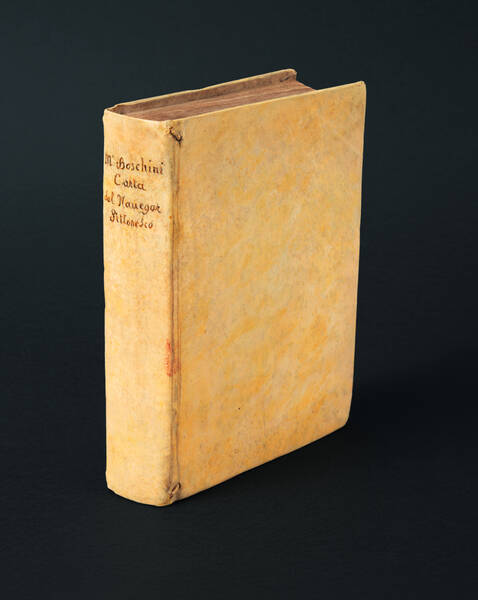
BOSCHINI, Marco
La carta del nauegar pitoresco dialogo tra vn senator venetian deletante, e vn professor de pitura, soto nome d'ecelenza, e de compare. Comparti' in...
€ 7.000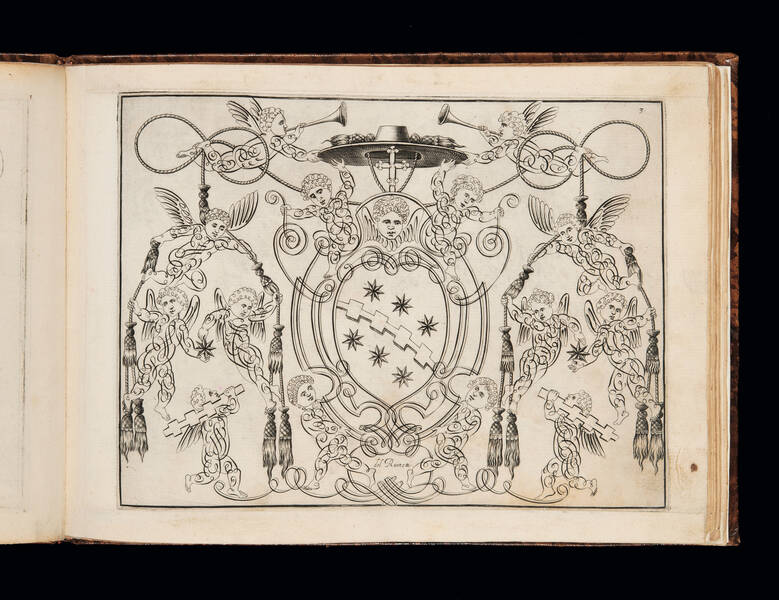
RUINETTI, Tomaso
Idea del buon scrittore, opera prima di Tomaso Ruinetti da Ravena a’beneficio de’desiderosi d’imitare le vere forme dello scrivere.
€ 8.000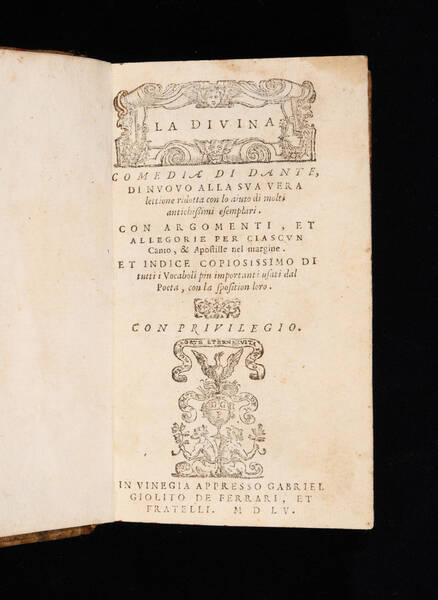
ALIGHIERI, DANTE
La Divina Comedia Di Dante, di nuouo alla sua vera lettione ridotta con loaiuto di molti antichissimi esemplari. Con argomenti, et allegorie per...
SOLD OUT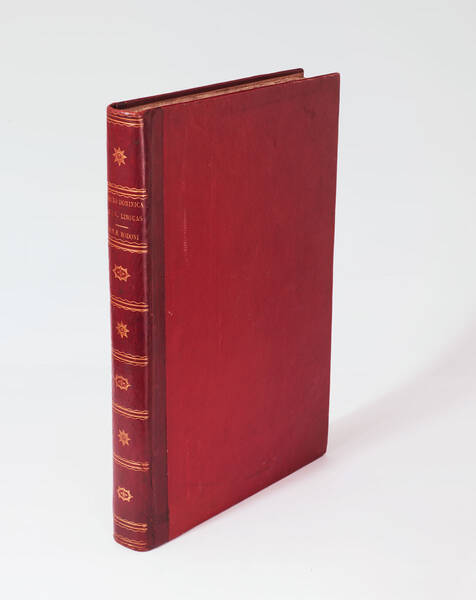
[BODONI]
Oratio Dominica in CLV linguas versa et exoticis characteribus plerumque expressa.
SOLD OUT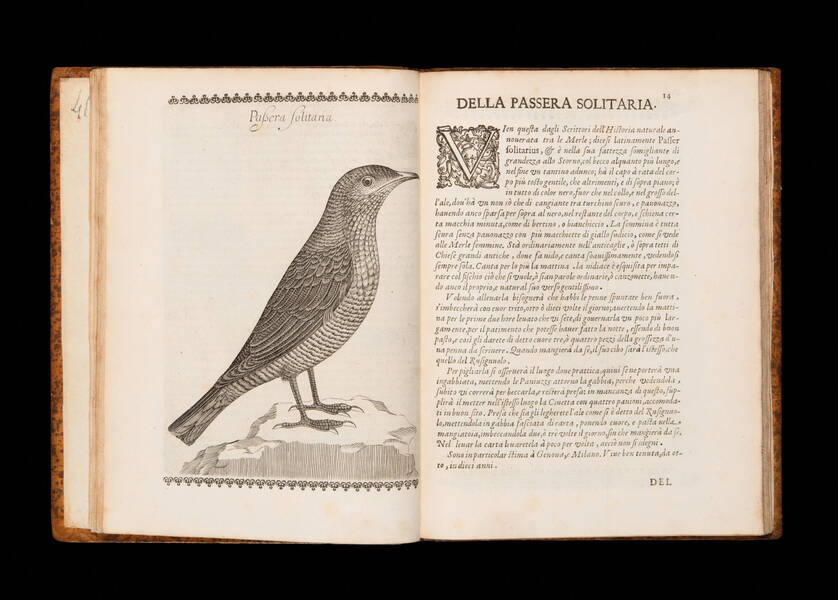
OLINA, Giovanni Pietro
Vccelliera ouero discorso della natura, e proprieta di diuersi vccelli, e in particolare di que' che cantano. Con il modo di prendergli, conoscergli,...
€ 6.000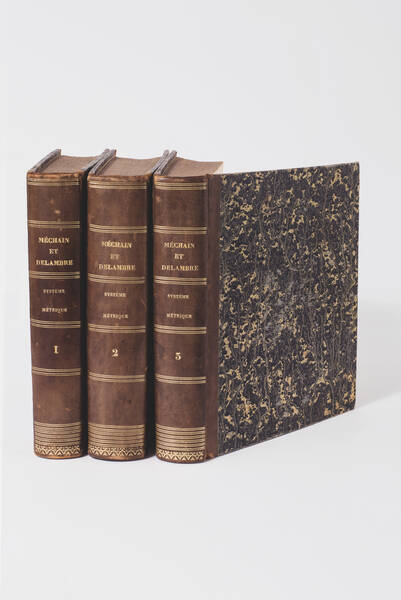
DELAMBRE, Jean-Baptiste-Joseph & MÉCHAIN, Pierre-François-André
Base du système métrique décimal, ou mesure de l'arc du méridien compris entre les parallèles de Dunkerque et Barcelone, exécutée en 1792 et années...
SOLD OUTMEDA RIQUIER rare books ltd.
4 Bury Street St James's
SW1Y 6AB London
Phone +44 (0) 7770457377
info@medariquier.com
